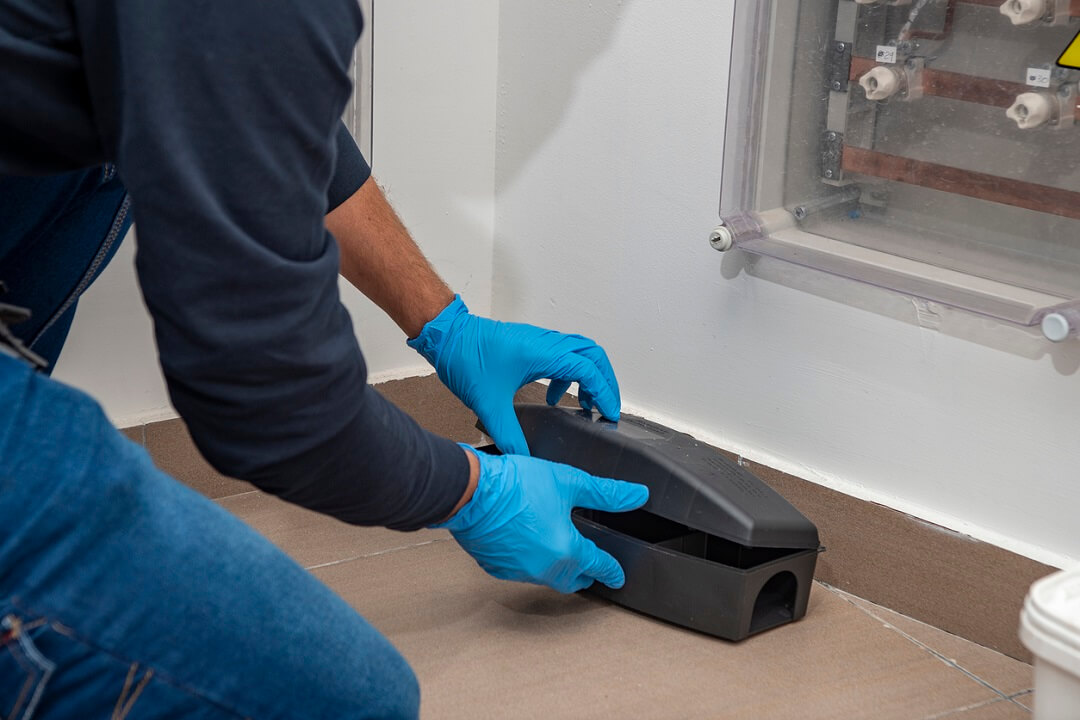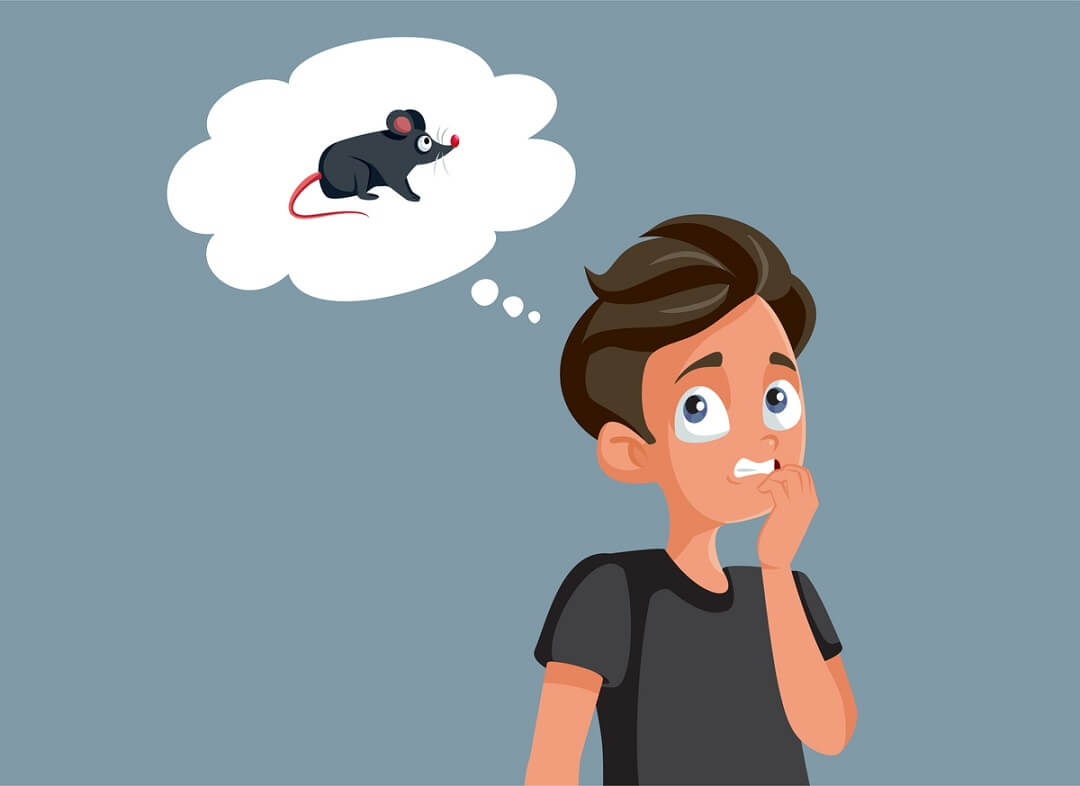Rats are responsible for thousands of dollars in business and residential structural damage every year. While this is a large problem, the health risks these rodents may cause can be even more detrimental to you and your family or your customers and employees. Whether by contamination or direct contact, a rat infestation can pose a serious risk to your health and, in rare cases, even death.
Here we explore some of the ways that a rat infestation can make you sick and some of the conditions commonly spread by wild rats. In many cases, these health risks do not even require direct contact with a rat and are often spread through food and surface contamination.
When you see a rat in your home or business, chances are there are many more you can’t see. The presence of these rodents can present a serious health risk and should be addressed by professional pest control services right away to help keep you and your family safe.
Key takeaways
- Rat infestations can pose serious health risks, including the spread of diseases like Leptospirosis, Hantavirus Pulmonary Syndrome, Salmonellosis, Rat-Bite Fever, and even the plague.
- Rat infestations can also indirectly lead to additional pest infestations, psychological distress, sleep disruption, and property damage.
- DIY rat control measures include sealing entry points, removing food and water sources, keeping the home clean, placing traps, and using natural deterrents.
- Professional pest control services are recommended for effective and long-term rat management, as they have the expertise, resources, and preventive measures to eliminate infestations and minimize risks.
- Wild rat infestations should be taken seriously, and professional assistance can ensure your safety and peace of mind.
Direct health risks posed by rat infestations
The presence of rats in your home or business increases the risk of exposure to many different germs, parasites, and allergens that can make you sick. Even if you have never seen a rat or come directly into contact with one, their silent presence in your home can be enough to make you sick.
Diseases transmitted directly by rats
Rat infestations can spread several diseases to humans through various means. Some common diseases associated with rat infestations include:
- Leptospirosis: This bacterial infection is transmitted through contact with water, soil, or food that is contaminated with the urine of infected rats. It can lead to symptoms such as high fever, severe headache, muscle aches, vomiting, jaundice, and, in severe cases, kidney and liver damage. In rare cases, leptospirosis can be fatal.
- Hantavirus Pulmonary Syndrome: This viral disease is contracted by inhaling airborne particles from rat droppings, urine, or saliva. It can cause flu-like symptoms initially but can progress to severe respiratory distress, potentially leading to life-threatening complications.
- Salmonellosis: Rats can carry Salmonella bacteria, which can contaminate food and water sources through their droppings or by direct contact. Ingesting contaminated food or water can result in salmonellosis, causing symptoms such as diarrhea, abdominal cramps, fever, and nausea.
- Rat-Bite Fever: This bacterial infection can be transmitted through bites or scratches from infected rats. It can lead to symptoms such as fever, chills, headache, muscle pain, joint pain, and a distinctive rash. If left untreated, rat-bite fever can cause serious complications.
- Plague: Although rare, rats can carry fleas that can transmit the bacteria responsible for the bubonic, septicemic, or pneumonic forms of the plague. The plague can cause severe illness, including fever, chills, swollen lymph nodes, and in some cases, can be fatal if not treated promptly.
Allergies and asthma
In addition to spreading germs and parasites, rats can also be directly responsible for triggering allergies and asthma attacks. Rat droppings and urine can release allergens into the air that you can breathe in. These allergens can trigger allergic reactions and asthma attacks in those that are susceptible. For those without a history of allergies or asthma, these airborne particles can still irritate the respiratory tract, leading to issues such as breathing difficulty, coughing, and wheezing.
Indirect health implications of rat infestations
While rat infestations can cause direct health risks, their presence in your home can also contribute to additional conditions that can make you or your family sick. These can include:
- Increased risk of additional pest infestations: Rat infestations can attract other pests such as fleas, ticks, and mites. These pests can transmit diseases and cause additional health issues for humans and pets.
- Psychological distress: The presence of rats in a living or working environment can cause psychological distress, anxiety, and stress for individuals. Fear of rats and the perception of an unsanitary environment can impact your mental well-being.
- Loss of sleep: Rats are primarily nocturnal creatures, and their activity during the night can disrupt sleep for individuals living in infested areas. Lack of proper sleep can lead to fatigue, reduced productivity, and compromised overall health.
- Damage to property: Rats are destructive in nature and are notorious for gnawing on various materials, including wooden structures, electrical wiring, and pipes. Their gnawing activities can cause property damage and increase the risk of structural problems, electrical malfunctions, fires, and water leaks.
Prevention and control
If you have seen a rat or suspect an infestation, immediate treatment is necessary to help prevent a serious infestation. However, when you see a rat, chances are there are many more you don’t see already. Controlling and eliminating a rat infestation can be challenging to do on your own and, in cases of severe infestation, professional pest control is recommended.
DIY rat control measures
If you are tackling a rat infestation on your own, DIY methods are very similar to those that a professional pest control company will implement. These can include:
- Identifying and sealing potential entry points: Rats can enter spaces as small as a quarter, so it is important to seal these points of entry.
- Removing food and water sources: Rats can chew through food boxes and packages with ease, so transferring foods into glass or plastic containers can help keep the rats away. Look for areas of water leaks and seal these pipes.
- Keep your home clean: It is important to clean food debris from around your home, as well as organize and declutter areas where rats may hide or create nests.
- Place rat traps: Whether you choose kill traps or humane relocation traps, set them in areas where you have seen rat activity. This can include around walls or in food pantries.
- Consider using natural deterrents: Natural deterrents, such as peppermint oil, can help to repel rats and other pests. Plant peppermint plants along the perimeter of your home or place cotton balls soaked in peppermint oil in areas of rat activity.

Professional pest control services
Rat management and control can be very challenging, and, in most cases, professional pest control services are recommended. Pest control professionals have the expertise, experience, and specialized training to accurately identify the extent of your infestation and determine the most appropriate treatment methods. They are able to conduct a thorough inspection of the property, locating entry points, nesting areas, and areas of high activity.
Pest control experts can access professional-grade traps, baits, and rodenticides that are more effective than consumer-grade products. They can implement targeted strategies to safely and efficiently eliminate rats while also taking precautions to minimize risks to humans, pets, and the environment. Additionally, professional rat control services often include ongoing monitoring and preventive measures to prevent future infestations, ensuring long-term rat control and peace of mind for homeowners or businesses.
Keeping you and your family safe from a rat infestation
While a pet rat may be fine for those that find the rodents appealing, wild rats invading your home or business are far from cute. In fact, it can be dangerous to your health and the health of others. While you may try to eliminate rats on your own, professional pest management services are often necessary to eliminate rat infestations and help ensure that the rats do not return.
You don’t have to tackle rats alone
At Insight Pest Management, our technicians understand rat behavior and the best ways to identify, eliminate, and prevent rat infestations in your home or business. If you have seen a rat scurry across your floor or countertop, our team of specialists can help. Schedule an inspection today, and let us help take care of your unwanted visitors.


